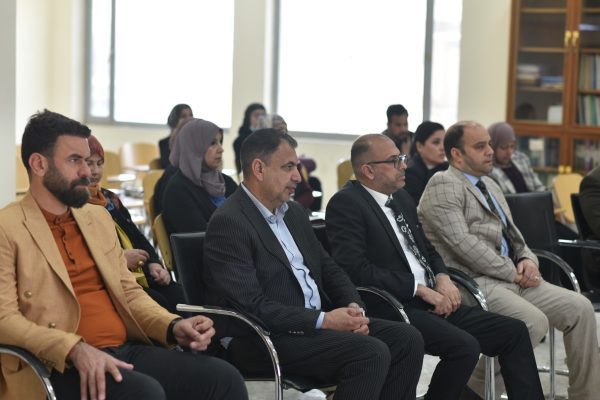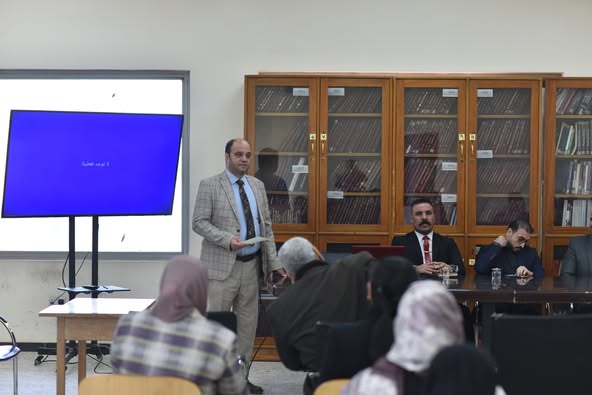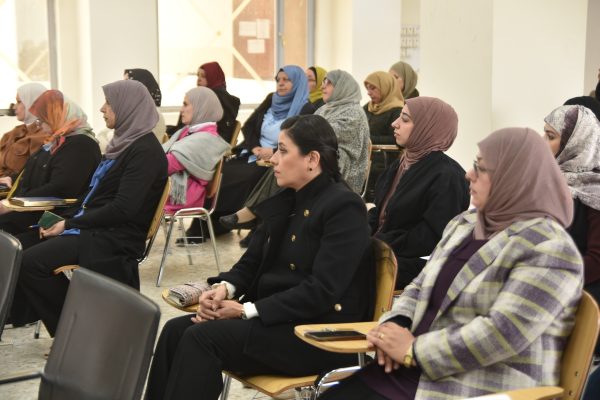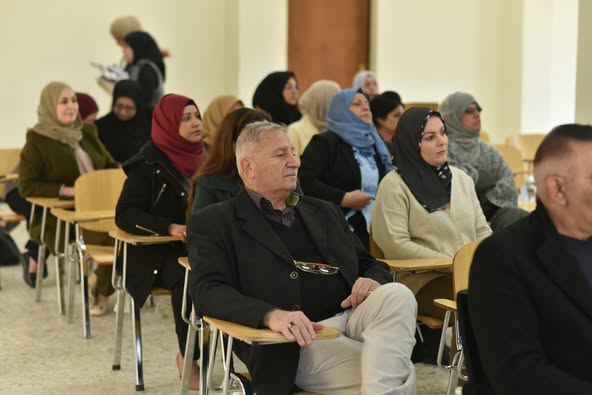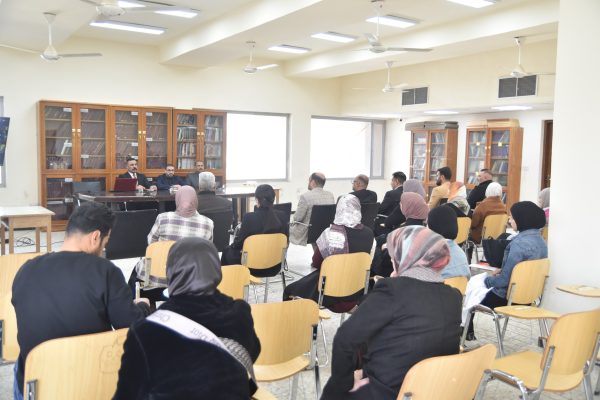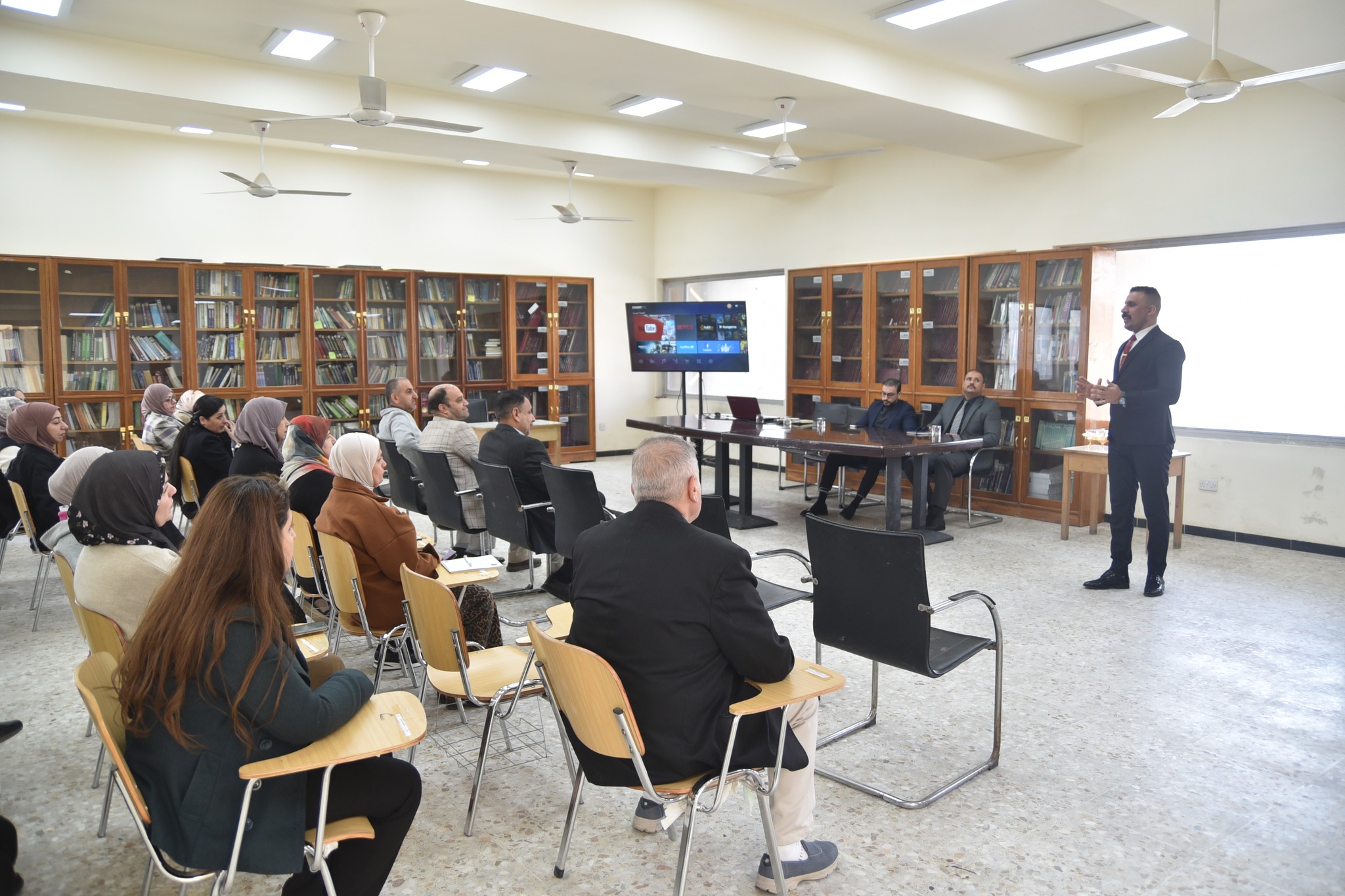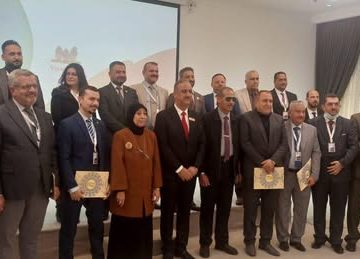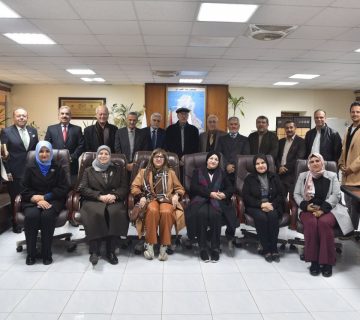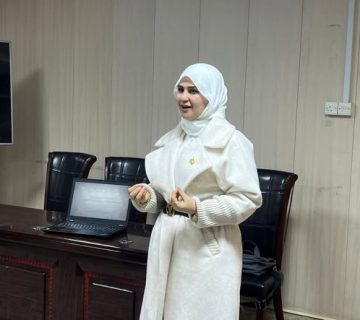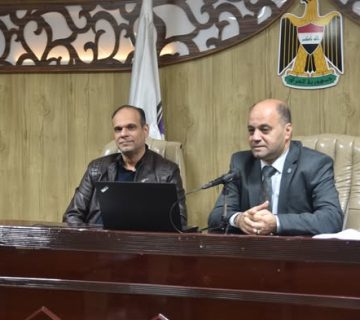Under the patronage of Professor Dr. Samira Naji Kazem, Dean of the College of Science for Women, the Continuing Education Unit, in collaboration with the Media and Government Communication Division and in coordination with a team from the National Security Agency, organized a workshop titled “Extremism… Causes… Consequences” in the Life Sciences Department Library hall.
The workshop was attended by Mr. Issam Nasser, Head of University Presidency Follow-up, Mr. Dr. Adel Hussein Talib, Assistant Dean for Administrative and Financial Affairs, Mr. Saad Abu Helal, Head of College Follow-up, along with a number of faculty members, staff, and students from the college.
The workshop began with a definition of extremism as adopting positions or opinions that are considered overly rigid, crossing socially, religiously, or intellectually accepted boundaries. Extremism often manifests in an intense and exaggerated attachment to certain ideas or beliefs, whether religious or political, and can lead to violent actions or the complete rejection of opposing ideas. It can appear in various fields, such as religion, politics, sports, or any other issue, and is usually accompanied by intolerance toward others and disregard for differing opinions.
The team clarified the causes of extremism, which are multifaceted and complex, including individual, social, political, and religious factors. Among the main causes that could lead to extremism are:
- Social and Economic Marginalization: This can push some individuals to adopt extremist ideas in order to gain social status.
- Social and Cultural Upbringing: Growing up in environments saturated with extreme ideas, whether within the family or society, can contribute to an individual adopting extremist views.
- Political Conditions: Political crises and wars faced by people can be significant factors in the spread of extremism.
- Emotional or Psychological Void: One of the major causes of extremism is the emotional or psychological void some individuals feel, where extremism may serve as a way to find purpose or meaning in their lives, especially if they are socially isolated or dealing with unresolved psychological issues.
- The Internet and Social Media: Another factor pointed out by the speakers is the role of the internet and social media, which have become primary tools for spreading extremist ideas. They enable individuals to easily join extremist groups and reinforce their rigid beliefs through ideological isolation.
The workshop included several suggestions and solutions to combat extremism, such as raising awareness, restricting social media platforms that focus on promoting extremism, and emphasizing the importance of educating young people to think with moderation and balance. This will help ensure a cohesive and balanced society, both intellectually and socially, and create a balanced cultural environment.
